 PMINDIA
PMINDIA
Reflecting the spirit and the changed dynamics of the new India, the institutions of governance and policy have to adapt to new challenges and must be built on the founding principles of the Constitution of India, the wealth of knowledge from our civilizational history and the present-day socio-cultural-economic contexts. The aspirations of India and its citizens require institutional reforms in governance and dynamic policy shifts that can seed and nurture unprecedented change.
https://www.youtube.com/watch?v=P0c6FCi-FRg
In keeping with these changing times, the Government of India has decided to set up NITI Aayog (National Institution for Transforming India), in place of the erstwhile Planning Commission, as a means to better serve the needs and aspirations of the people of India. A wide consultation was held prior to the formation of NITI Aayog, with Chief Ministers, Experts, Economists & general public through MyGov.
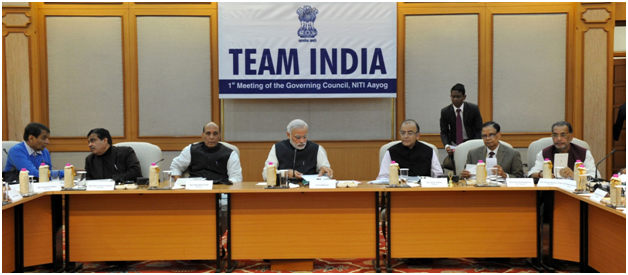
We are on a journey to achieve an India that not only fulfills the aspirations of the people, but also stands proudly on the world stage. The people of India have great expectations for progress and improvement in governance, through their participation. In the course of this transformation, while some changes are anticipated and planned, many are a consequence of market forces and larger global shifts. The evolution and maturing of our institutions and polity also entail diminished role of centralised planning, which itself needs to be redefined.
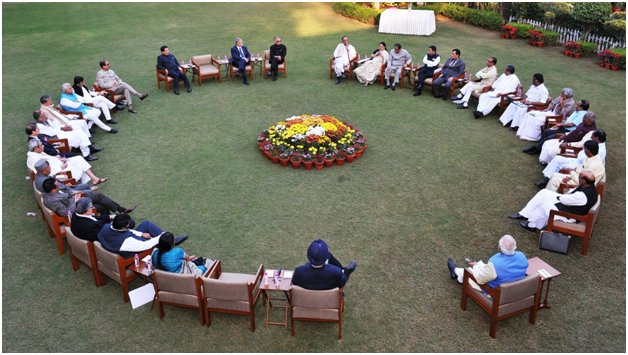
Our demographic dividend has to be leveraged fruitfully over the next few decades. The potential of our youth has to be realized through education, skill development, elimination of gender bias, and employment. We have to strive to provide our youth productive opportunities to work on the frontiers of science, technology and knowledge economy.
The role of the government in achieving ‘national objectives’ may change with time, but it will always remain significant. Government will continue to set policies that anticipate and reflect the country’s requirements and execute them in a just manner for the benefit of the citizens. The continuing integration with the world politically and economically has to be incorporated into policy making as well as functioning of the government.

In essence, effective governance in India will rest on following ‘pillars’:
– Pro-people agenda that fulfils the aspirations of the society as well as individual,
– Pro-active in anticipating and responding to their needs,
– Participative, by involvement of citizenry,
– Inclusion of all groups,
– Equality of opportunity to our country’s youth,
– Sustainable development, by protecting environment, and
– Transparency that uses technology to make government visible and responsive.
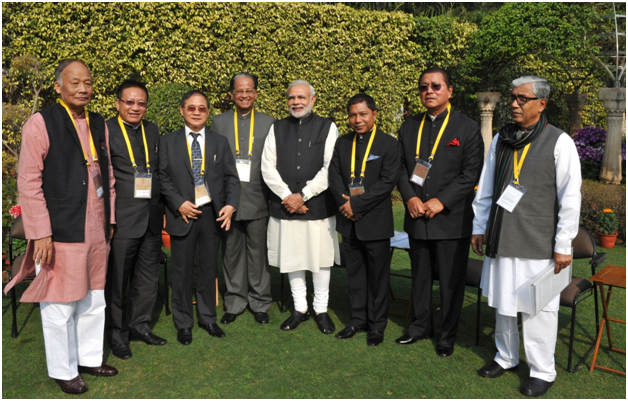
Improvement of governance is a pre-requisite for improving the quality of life of the people. At the same time, it can only be achieved by a creative, synergistic and constantly evolving partnership between stakeholders across the public, private sectors as well as civil society. Delivery of services has to improve through people’s participation at all levels.
The institutional framework of government has changed over the years. What is needed today is development of domain expertise which allows us the chance to increase the specificity of functions given to institutions. Specific to the planning process, there is a need to separate as well as energize the distinct ‘process’ of governance from ‘strategy’ of governance.
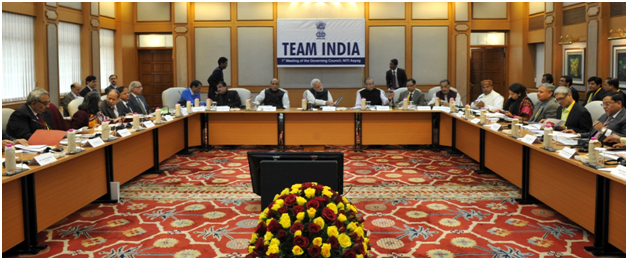
In the context of governance structures, the changed requirements of our country, point to the need for setting up an institution that serves as a Think Tank of the government – a directional and policy dynamo. NITI Aayog aims to do exactly serve this purpose. It will provide governments at the central and state levels with relevant strategic and technical advice across the spectrum of key elements of policy. This includes matters of national and international import on the economic front, dissemination of best practices from within the country as well as from other nations, the infusion of new policy ideas and specific inputs based on various issues.

An important evolutionary change from the past will be replacing a Union-to-State one-way flow of policy by a genuine and continuing partnership with the states. NITI Aayog will act with speed, to provide the strategic policy vision for the government as well as deal with contingent issues.
While incorporating positive influences from the world, no single model can be transplanted into the Indian scenario. We need to find our own strategy for growth & this is where NITI Aayog will play a major role.
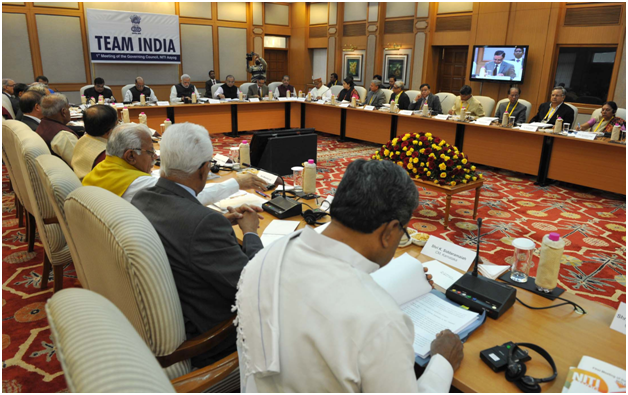
NITI Ayog will work towards the following objectives:
– To evolve a shared vision of national development priorities, sectors and strategies with the active involvement of the states in the light of national objectives. The vision of the NITI Aayog will then provide a framework for ‘national agenda’ for the Prime Minister and the Chief Ministers to provide impetus to.
– To foster collaborative federalism through structured support initiatives and mechanisms with the states on a continuous basis, recognizing that strong states make a strong nation.
– To develop mechanisms to formulate credible plans at the village level and aggregate these progressively at higher levels.
– To ensure, on areas that are specifically referred to it, that the interests of national security are incorporated in economic strategy and policy.
– To pay special attention to the sections of our society that may be at risk of not benefitting adequately from economic progress,
– To design strategic and long term policy and programme frameworks and initiatives, and monitor their progress and their efficacy. The lessons learnt through monitoring and feedback will be used for making innovative improvements, including necessary mid-course corrections.
– To provide advice and encourage partnerships between the key stake-holders and national and international Think Tanks, as well as educational and policy research institutions.
– To create a knowledge, innovation and entrepreneurial support system through a collaborative community of national and international experts, practitioners and other partners.
– To offer a platform for resolution of inter-sector and inter-departmental issues in order to accelerate the implementation of the development agenda.
– To maintain a state-of-the-art Resource Centre, be a repository of research on good governance and best practices in sustainable and equitable development as well as help their dissemination to stake-holders.
– To actively monitor and evaluate the implementation of programmes and initiatives, including the identification of the needed resources so as to strengthen the probability of success and scope of delivery.
– To focus on technology upgradation and capacity building for implementation of programmes and initiatives.
– To undertake other activities as may be necessary in order to further the execution of the national development agenda, and the objectives mentioned above.
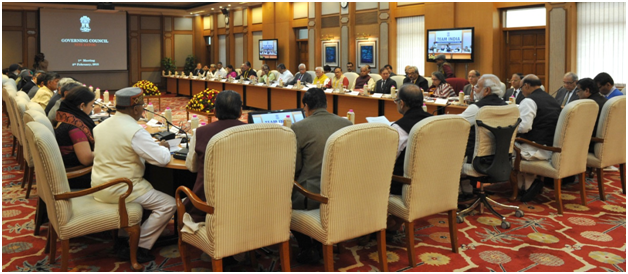
Through its commitment to a cooperative federalism, promotion of citizen engagement, egalitarian access to opportunity, participative and adaptive governance and continuously increasing use of developing technology, the NITI Aayog will seek to provide a critical directional and strategic input into the governance process.
EBOOK